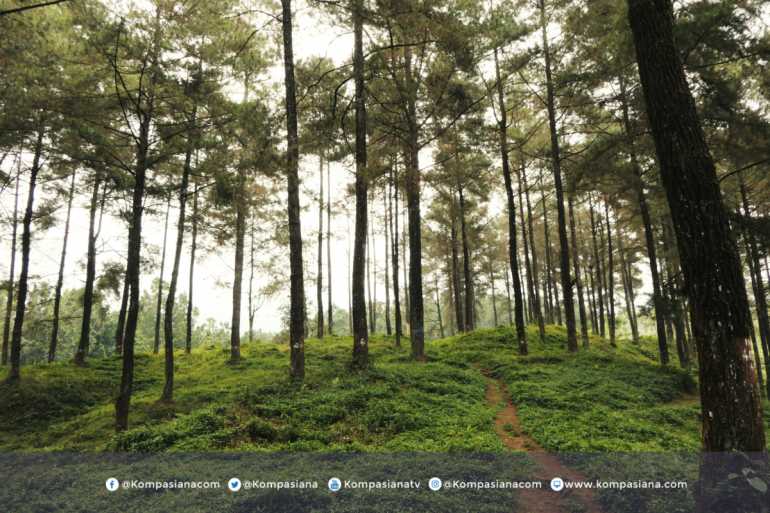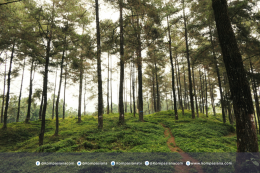Climate change is a global issue that cannot be overlooked. The rise of the earth’s temperature to the average level due to enhanced emissions of greenhouse gases has negatively affected different regions of the world, particularly Indonesia. Even large cities such as Surabaya are not an exception to this bad impact. Extreme weather conditions, changes in the patterns of rain, and an increase in the risk of flooding can all be attributed to climate change, which impacts the various facets of everyday life.
Schipper et al. (2024) critique the prevailing view that science is always value-free. It highlights that climate change is a real and serious phenomenon that adversely affects people and the environment. However, the reason for and how the risks of climate change should be communicated remains an issue of some debate. Sometimes, experts are afraid to talk about matters of serious concern due to the backlash that comes their way, thus making them appear biased or alarmist. At the same time, this reduces the ways of communicating the issue of climate change further, while greenhouse emissions remain higher than before due to the growing severity of scientific appeals.
Surabaya and the Impact of Climate Change
As one of the largest, most populated coastal cities, it is possible to start witnessing the manifestations of climate change in Surabaya. The weather in current years has been hotter in Surabaya, which comes with a peak temperature between 35-36 degrees Celsius during a dry season. Due to the lower intensity of rain and the prolonged dry season, water issues concern the residents of cities.
According to Anisa, a student at Universitas 17 Agustus Surabaya, who I interviewed, "In Surabaya, climate change is very pronounced. The weather is increasingly unpredictable, sometimes extreme heat, but rain is very rare.”
Anisa added that this unpredictable weather disrupts daily activities, especially for students and workers. "Friends often complain about how the long dry season affects their health. Many easily fall ill because of the very hot weather."
With the intensified appearance of long dry seasons in Surabaya, health hazards to the city's inhabitants intensify. High temperatures are known to lead to dehydration, heat stroke, and the worsening of many chronic illnesses. Besides, fresh water is scarce, a constraint since most water sources are beginning to dry up among the residents.
Apart from that, the issue of clean water is also an issue in the community since people have challenges accessing efficient water sources during the dry season. Heino et al. (2023) reveal that any unusual combination of extremely hot and dry climate conditions can harm the production of principal crops like rice, corn, and soybeans, some of the important food components worldwide. During the study period, there was also a corresponding increase in the risk of these extreme conditions occurring during the agricultural growing seasons, thereby threatening future food production.
Mitigation Efforts at the Local Level
While global action may seem the most effective way of combating climate change, local action also counts. The Surabaya City Government has tried to expand green open space and the proper management of water resource supplies to cope with air scarcity during the long dry season. However, we ought to appreciate that such efforts should additionally be strengthened, especially in the case of informing the public of the need to protect the environment, save air and decrease carbon emissions.
Conclusion
Global warming is no longer a problem for the next generations but indeed a problem for the present generations. Big cities like Surabaya should be ready to withstand numerous challenges, including meteorological ones and the likelihood of water scarcity in the years to come. This means the Government, society, and private sector must collaborate to prevent and respond to climate change. It is high time to act wisely not to endanger this city's future generations as threats become increasingly real.
References: Heino, M., Kinnunen, P., Anderson, W. et al. Increased probability of hot and dry weather extremes during the growing season threatens global crop yields. Sci Rep 13, 3583 (2023). https://doi.org/10.1038/s41598-023-29378-2
Schipper, E.L.F., Maharaj, S.S. & Pecl, G.T. Scientists have emotional responses to climate change too. Nat. Clim. Chang. 14, 1010–1012 (2024). https://doi.org/10.1038/s41558-024-02139-3
Author: Zakia Selma Ardhana
Baca konten-konten menarik Kompasiana langsung dari smartphone kamu. Follow channel WhatsApp Kompasiana sekarang di sini: https://whatsapp.com/channel/0029VaYjYaL4Spk7WflFYJ2H







